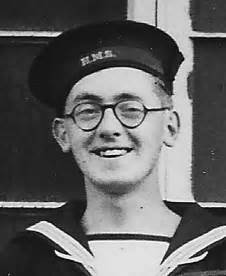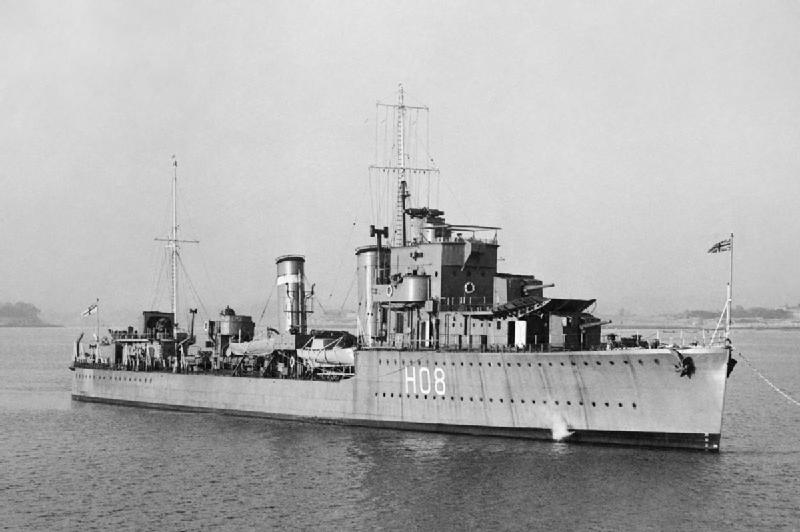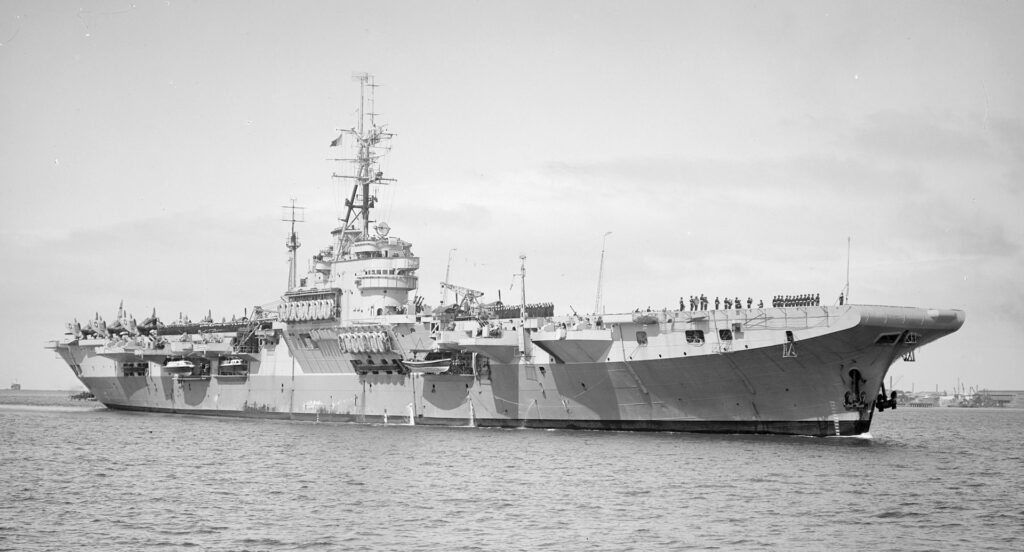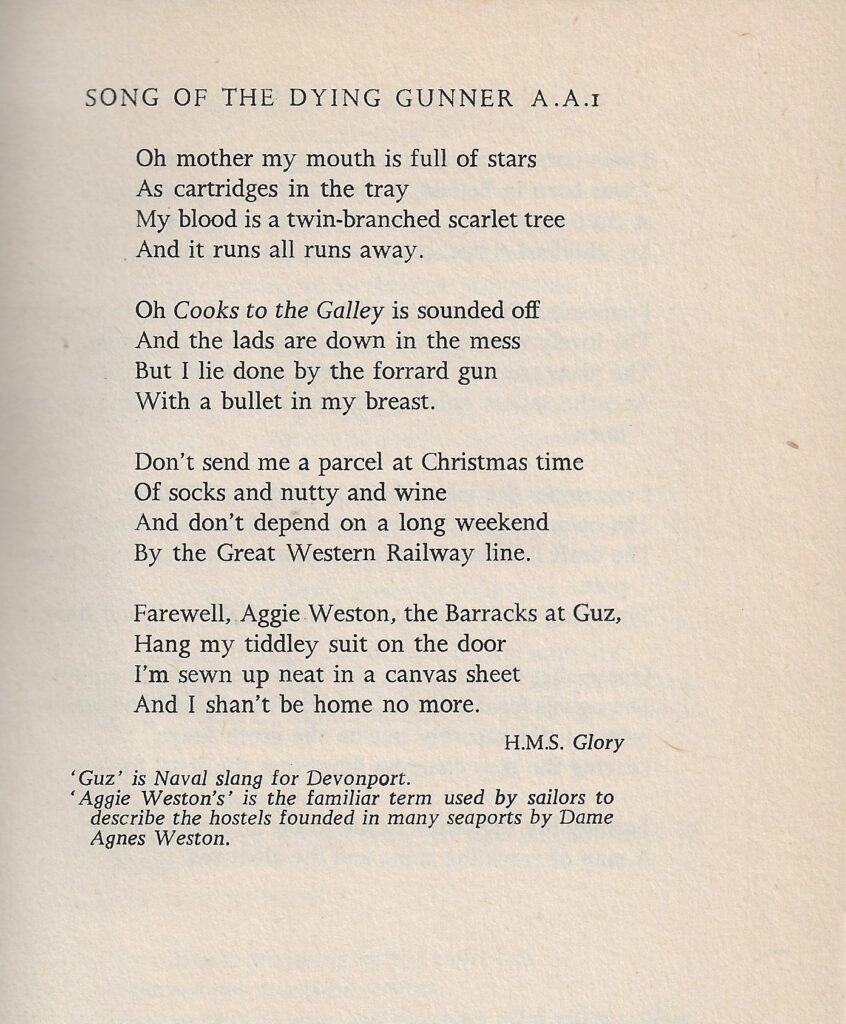The name Charles Causley may not immediately spring to mind when considering war poets. Yet of his 270poems fifty were set during or around his war service. Even many of the others were imbued with the dark shadow of war. There is no doubt he was haunted by the conflict. One of his most powerful poems is the Song of the Dying Gunner A.A. I. which still can leave a lump in the throat.

For many years I had known about Charles Causley, my Father a former navy man was an avid reader of his poetry. Reading my Father’s Causley’s I too became an admirer. In particular I like his wartime experiences told in his book Hands to Dance and Skylark. In my book Alistair MacLean’s War I used a few brief quotes from the Causley book. The two men had much in common. Both volunteered for the navy to avoid being drafted into the army. Both had soldier fathers gassed in the trenches of the Great War and both, although surviving that conflict, died early as a result when Charles was seven and Alistair fourteen.
The parallels continued in their naval service with both men serving in the Atlantic, Mediterranean and Far East. Causley served on the destroyer HMS Eclipse and later on the aircraft carrier HMS Glory. After demob both went to university and both became teachers and they would also become writers.


There the similarities ended. MacLean became a multi-million bestselling author of thrillers many based on his wartime experiences. Whereas Causley remained a teacher until he retired in 1976 when he could concentrate fully on his writing. He died in 2003 yet this well loved poet continues to grow in popularity.
Did Charles Causley and Alistair MacLean ever meet? Unlikely, although MacLean for a few years did own Jamaica Inn high up on Cornwall’s Bodmin Moor not far from Charles Causley’s home town of Launceston.
You can learn more about Charles Causley at www.warpoets.org/conflicts/world-war-ii/charlescausley/ www.causleytrust.org
